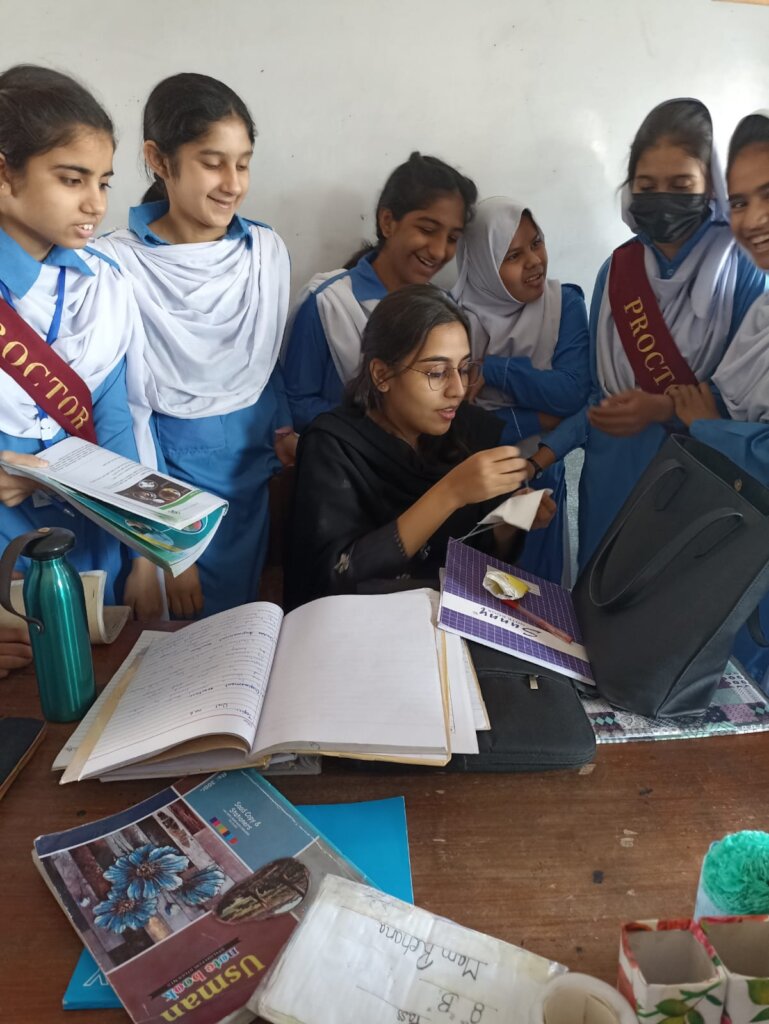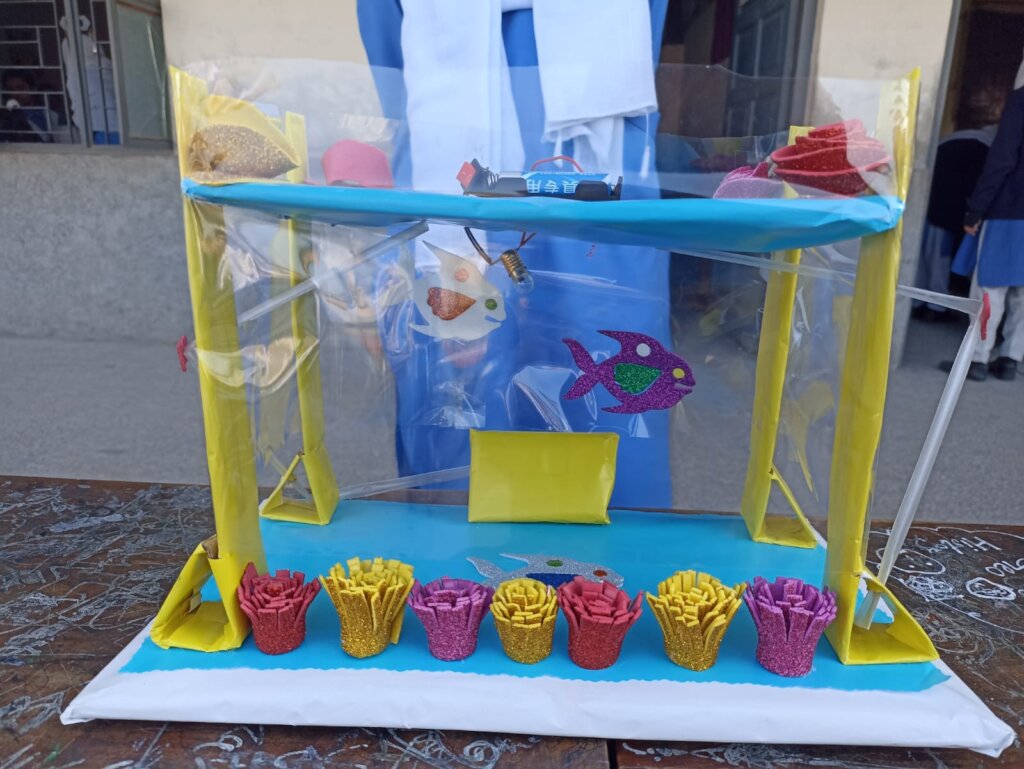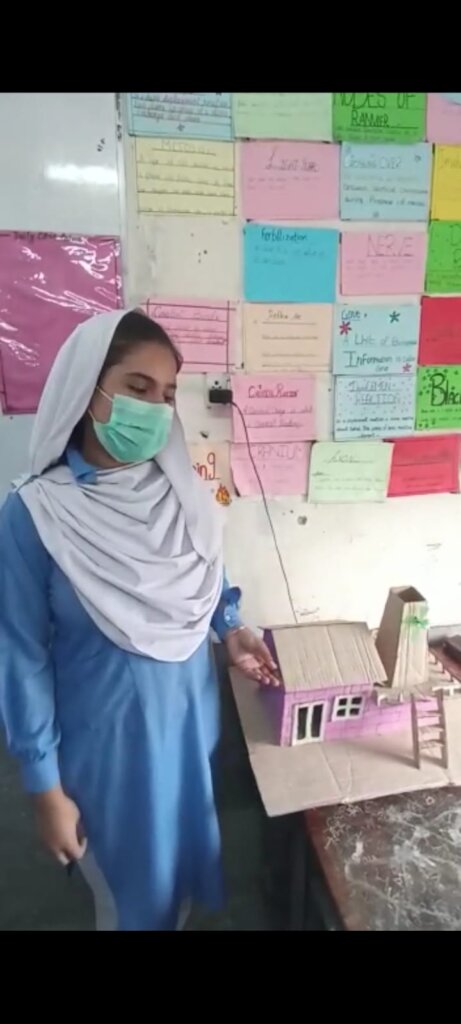By Hamna Aamir | Development and Partnerships
Dear Partners,
We hope you are preparing for the start of the new year with your loved ones close by. Thanks to your support, Teach For Pakistan’s Fellows can ensure that our students continue learning, come rain or shine. Fellows are on a path of enabling their students to achieve transformational outcomes and create learning opportunities for them whenever possible, and are encouraged by your generosity and faith. We at Teach For Pakistan are all ready to enter into the new year alongside you, invigorated more than ever, to do our part in ending education inequity across the country.
Below is a look into what we achieved this year.
Fostering relations with key stakeholders
COVID-19 tested the strength of our systems and foundations, especially within education and schools, the after-shocks of which we are still learning about and from. Much of our last year was spent in understanding and adapting to the challenges of a poorly-supported education system shaken by the pandemic. It was through your support during this time that Fellows could provide students with resources and materials to continue learning, as our students from low-income communities were one of the most disproportionately impacted by school closures.
The post-COVID recovery phase in schools was characterized not only by reducing the learning gap, but also strengthening the connection between and among parents and teachers. While schools were closed, teachers were a crucial touchpoint for parents and vice versa. Through Fellows’ efforts, we saw that engagement between a parent and teacher meant uninterrupted and consistent learning for a student, ultimately leading to improved outcomes. Since schools have opened and till now, Fellows have redoubled efforts to foster relations with parents. Our Fellows not only strengthen education delivery for their students, but bridge the gap between parent and teacher – all teachers, including other school staff.
What did this look like?
A Principal Survey conducted in May 2022 with 17 Principals working with Fellows from the 2020 cohort – now part of our Alumni network – showed us the extent of Fellows’ impact. Through this survey, we found that more than 90% of Principals agreed to Fellows developing a strong relationship with students’ parents, and more than 70% stated that Fellows also helped the school develop better relations with the parents. This evidence is crucial in understanding that a Fellow’s job goes beyond helping a student in the classroom. Fellows understood that involving parents in their child’s education is critical in ensuring the child’s success, and subsequently took certain steps and measures to ensure this relationship-building. They were able to do this through one-on-one meetings with parents, community visits, and staying in touch in order to keep them updated on their child’s progress.
More than 80% of Principals believe that parents displayed an increased interest in students’ learning on account of Fellows’ engagement and interventions, reflected in an increased attendance for Parent-Teacher meetings recorded by more than two-thirds of the Principals who responded to the survey.
“TFP is doing the best it can for Pakistani students. The contribution is remarkable not only for students but also for other teachers. They have introduced us to alternate and newer modes of teaching”
Principal of Islamabad Model School for Boys, Malpur.
Building towards systemic change!
Within a month of schools shutting down in 2020, Pakistan’s Ministry of Federal Education and Professional Training (MoFEPT) launched TeleSchool – a national education channel broadcasting educational content to homes across the country, especially children from low-income communities. Teach For Pakistan played a pivotal role in supporting this project by creating curriculum used by ed-tech firms to develop content for TeleSchool. Our work during school closures empowered us with the requisite skills and knowledge of pedagogy and ed-tech, as well as a focused understanding of the learning needs and levels of students from various socio-economic backgrounds.
Building upon this knowledge, in November of 2022, Teach For Pakistan once again partnered with the Ministry under the World Bank’s Response, Recovery, and Resilience in Education Project (RRREP) and Actions to Strengthen Performance for Inclusive and Responsive Education Program (ASPIRE) to review and evaluate digital educational content from various suppliers. The project’s aim was to ensure the continuity of learning, including remote learning options, at all levels through videos broadcasted via Tele School. Teach For Pakistan staff and Fellows reviewed and evaluated over 6400 videos from various ed-tech providers for several subjects across Early Childhood Education till the 12th grade. This review was meant to facilitate the Ministry in deciding the primary supplier for the project.
Teach For Pakistan’s involvement in this project is crucial as it reflects the voice of teachers and instructional leaders who have first-hand knowledge and experience of working with students in challenging contexts. On an organizational level, this is significant on two accounts; it recognizes Teach For Pakistan’s contributions and success in assessing and addressing the needs of an impacted group in unprecedented circumstance, and lays the groundwork for our involvement in strengthening our emergency response in an effort to create a resilient educational landscape.
Finding a way - creating new learning opportunities for students!
Second-year Fellow Ayesha teaches the 7th and 8th grade Science at Islamabad Model School for Girls in Sihala. Her students are curious and enthusiastic learners, but some were unable to share openly in the classroom, and many of them had little to no access to resources that would augment STEM learning. To increase their engagement with the subject and allow them a chance to learn through creation, Ayesha encouraged them to make their own resources and Science models with everyday household items. She understood that she must create new avenues of learning for her students despite lack of materials, and so found novel ways to cater to their needs. She dedicated a few classes in training the students on how to present, and once done, students presented their models in class. Ayesha saw her students change in multiple ways; ones that were shy before started to speak up more, others were collaborating with peers and working in groups, and most of all she saw that her students had found a newfound way to appreciate Science despite the obstacles they faced. Ayesha's work with her students showed us that any and all obstacles to learning can be mitigated as long as one has the support and will to do so. She understands that there is much more to be done but is hopeful and excited about all her girls will accomplish!
Your support and contributions enable our Fellows to create new learning opportunities for students as well as Teach For Pakistan's growth towards ending education inequity regardless of circumstance.
We hope to see you again in the New Year!
Links:
Project reports on GlobalGiving are posted directly to globalgiving.org by Project Leaders as they are completed, generally every 3-4 months. To protect the integrity of these documents, GlobalGiving does not alter them; therefore you may find some language or formatting issues.
If you donate to this project or have donated to this project, you can receive an email when this project posts a report. You can also subscribe for reports without donating.
Support this important cause by creating a personalized fundraising page.
Start a Fundraiser

